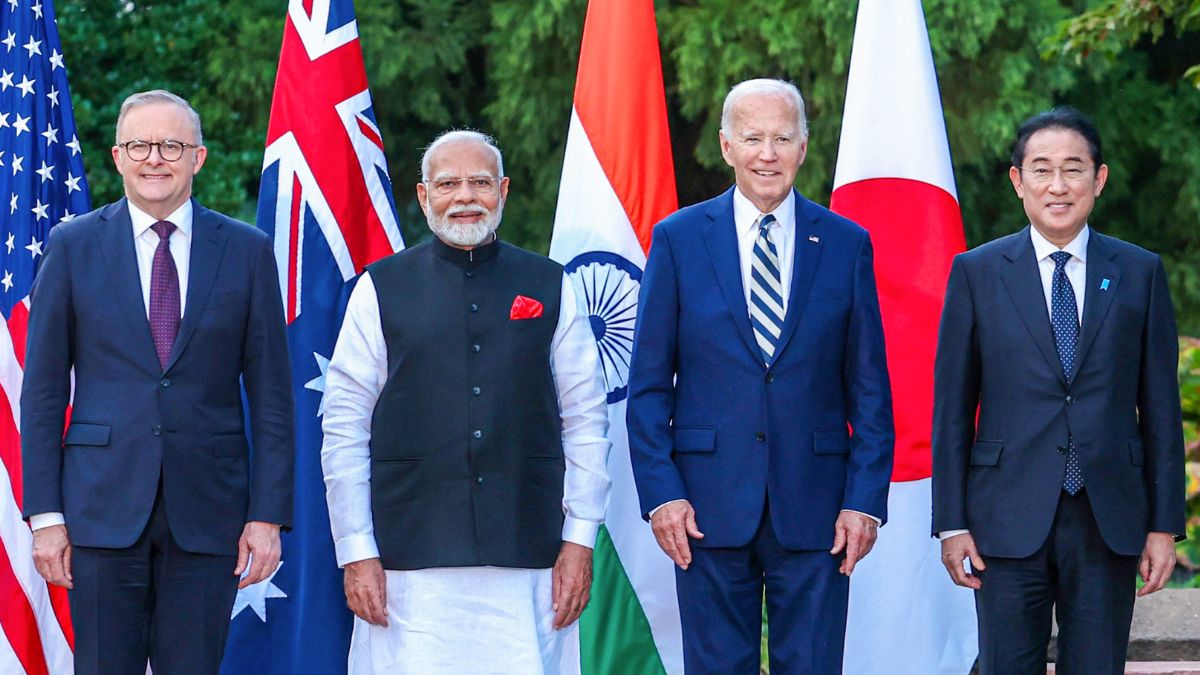- By Shivangi Sharma
- Sun, 22 Sep 2024 04:55 PM (IST)
- Source:JND
Prime Minister Narendra Modi announced India's pledge of USD 75 million (Rs 62 crore) to the Quad Cancer Moonshot initiative, which focuses on cancer testing, screening, and diagnostics in the Indo-Pacific region. Speaking at an event hosted by US President Joe Biden during the Quad Leaders' Summit in Wilmington, Delaware, on September 22, Modi highlighted the significance of accessible and affordable healthcare, especially in the areas of cancer prevention and treatment.
PM Modi also declared that India would supply 40 million (4 crore) doses of the HPV vaccine and HPV screening kits to countries in the Indo-Pacific region.
"India is implementing a large-scale cervical cancer screening program and has developed a cervical cancer vaccine," Modi stated, emphasising important advancements in healthcare.
He also noted that India is developing an artificial intelligence-driven treatment protocol for cervical cancer, which is significant given that the disease continues to be a major cause of death among women in the Indo-Pacific region.
“I heartily congratulate President Biden for organising this important event. It reflects our shared determination for affordable, accessible and quality healthcare,” the Prime Minister said.
“In cancer care, collaboration is essential for cure. An integrated approach of prevention, screening, diagnosis and treatment is necessary to reduce the burden of cancer,” he added.
The Cancer Moonshot initiative was launched in 2016 to accelerate scientific research on cancer. It was announced by then-President Barack Obama during his State of the Union address on January 12, 2016. Funding for the initiative came from the 21st Century Cures Act, which was also passed in 2016. At that time, Obama appointed then-Vice President Biden to lead the task force.
What Is Cancer Moonshot Initiative?
Modi announced the launch of the Quad Cancer Moonshot Initiative in the Indo-Pacific to combat cancer. The Quad countries—United States, India, Japan, and Australia—are collaborating on this ambitious initiative aimed at reducing cancer mortality and enhancing cancer care infrastructure in the region.
The initiative seeks to strengthen the overall cancer care ecosystem by improving healthcare infrastructure, research, data collection, and cancer prevention and treatment. A key objective is to enhance health infrastructure to make cancer care more accessible, particularly in underserved areas.
The initiative will also foster research collaborations to encourage innovative methods for cancer detection and treatment. Additionally, developing robust data systems will help monitor the effectiveness of cancer programs and promote efforts in prevention, screening, and treatment to provide comprehensive care for cancer patients.
